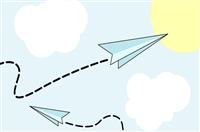
In the hustle and bustle of daily life, busy moms and dads don"t always have the time to focus on etiquette. But if you reinforce these 25 must-do manners, you"ll raise a polite, kind, well-liked child。
生活工作太忙碌,爸爸妈妈们不一定有时间关注孩子的礼仪教养,不过,只要注意将这25条教给孩子就行啦。
Manner #1
When asking for something, say "Please."
问别人话的时候先说“请”。
Manner #2
When receiving something, say "Thank you."
别人给了自己什么东西,要说“谢谢”。
Manner #3
Do not interrupt grown-ups who are speaking with each other unless there is an emergency。
不要打断大人们的谈话,除非真的有急事。
Manner #4
If you do need to get somebody"s attention right away, the phrase "excuse me" is the most polite way for you to enter the conversation。
如果真的需要跟某人说话,最好先说一句“打扰了”。
Manner #5
When you have any doubt about doing something, ask permission first. It can save you from many hours of grief later。
如果在做一件事前拿不定主意,先去征求父母的意见和许可。
Manner #6
The world is not interested in what you dislike. Keep negative opinions to yourself, or between you and your friends, and out of earshot of adults。
别人不关心你讨厌什么,所以一些批评言论最好只是跟朋友们随便说说,不要传得人尽皆知。
Manner #7
Do not comment on other people"s physical characteristics unless, of course, it"s to compliment them, which is always welcome。
不要对别人品头论足,当然称赞他人的外表是必要的。
Manner #8
When people ask you how you are, tell them and then ask them how they are。
当别人向你问好时,记得礼貌作答,并且也问候他们。
Manner #9
When you have spent time at your friend"s house, remember to thank his or her parents for having you over and for the good time you had。
在朋友家做客时要向朋友的父母表达感谢。
Manner #10
Knock on closed doors -- and wait to see if there"s a response -- before entering。
进房间前先敲门。
Manner #11
When you make a phone call, introduce yourself first and then ask if you can speak with the person you are calling。
打电话时先讲明自己是谁,然后再找自己想要找的人。而不是一开口就问XXX在吗。
Manner #12
Be appreciative and say "thank you" for any gift you receive. In the age of e-mail, a handwritten thank-you note can have a powerful effect。
收到礼物后要表达感谢,手写的感谢信比发电子邮件要好。
Manner #13
Never use foul language in front of adults. Grown-ups already know all those words, and they find them boring and unpleasant。
别在大人面前说脏话,大人们对脏话了如指掌,并且他们已经厌倦那些词语了。
Manner #14
Don"t call people mean names。
不要对人口出恶言。
Manner #15
Do not make fun of anyone for any reason. Teasing shows others you are weak, and ganging up on someone else is cruel。
任何情况下都不要嘲笑别人,这只会显示出你自己的软弱,对被嘲笑的人来说也是件残酷的事。
Manner #16
Even if a play or an assembly is boring, sit through it quietly and pretend that you are interested. The performers and presenters are doing their best。
看演出时就算再无聊也要保持安静,台上演出的人是付出了实实在在的努力的。
Manner #17
If you bump into somebody, immediately say "Excuse me."
撞到人的时候要立刻说抱歉。
Manner #18
Cover your mouth when you cough or sneeze, and don"t pick your nose in public。
咳嗽或者打喷嚏的时候要遮住嘴,并且公开场合不要抠鼻孔。
Manner #19
As you walk through a door, look to see if you can hold it open for someone else。
进出一扇门的时候记得停一小会,帮后面的人把门开着。
Manner #20
If you come across a parent, a teacher, or a neighbor working on something, ask if you can help. If they say "yes," do so -- you may learn something new。
看到父母、老师或者邻居在忙什么的时候,问一句能不能帮手。帮忙的过程中你也会学到一点半点东西。
Manner #21
When an adult asks you for a favor, do it without grumbling and with a smile。
当大人请你帮忙做什么事的时候,别抱怨,记得带着微笑去完成。
Manner #22
When someone helps you, say "thank you." That person will likely want to help you again。
别人帮了你的忙,记得说谢谢,这样他们下次也会乐意帮助你。
Manner #23
Use eating utensils properly. If you are unsure how to do so, ask your parents to teach you or watch what adults do。
正确使用餐具。不知道怎么用的时候就问父母,或者观察其他大人是怎么使用的。
Manner #24
Keep a napkin on your lap; use it to wipe your mouth when necessary。
把餐巾放在大腿上,需要的时候拿来擦嘴。
Manner #25
Don"t reach for things at the table; ask to have them passed。
不要伸手去拿桌子上离自己比较远的东西,请旁边的人帮你传过来。




